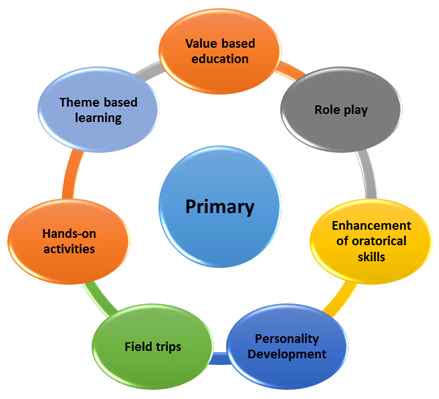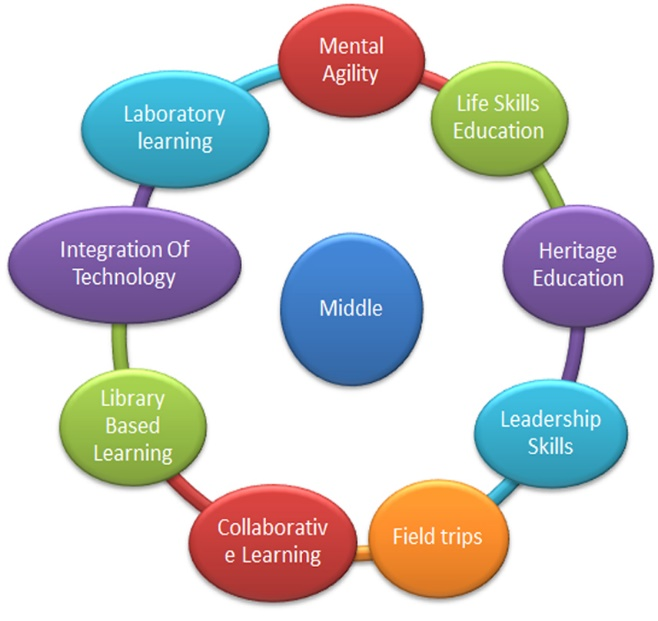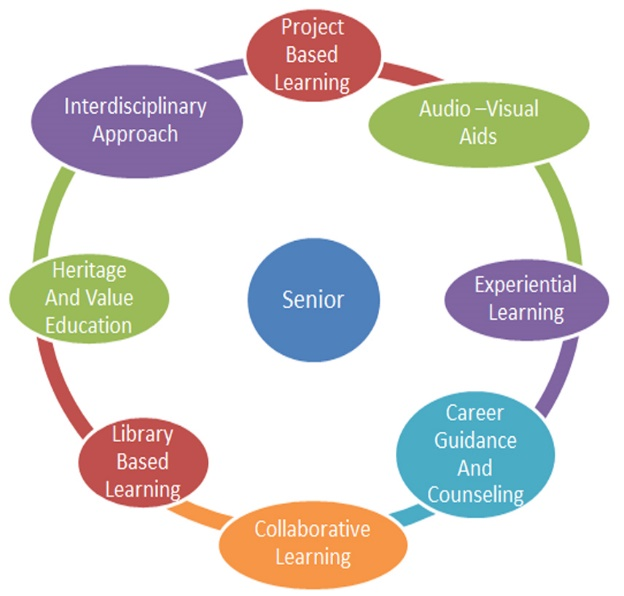
Course/Curriculum Details
A variety of teaching-- learning methodologies are used at AIS, Dudulgaon. Integration of Value Education, Heritage Education along with the latest technology has given the curriculum a multi-dimensional quality. This approach ensures holistic development and enables the pupil to become independent, self - reliant and above all global citizens.
- Our school follows the CBSE curriculum which is progressive in its outlook and ever evolving.
- Our methodologies are pro-active and encourage experiential learning, so that our students understand the whats and hows in tandem with the whys.
- In mastering each concept, they master their ability to seek out their own answers, making this a way of life.
- In addition to regular classes, the school has instituted special measures to open the minds of students to the wider world beyond the syllabus. Robotics, Coding, Aeromodelling, Abacus, Music and Dance etc. are subjects taught beyond the textbooks
- Worksheets, audio visuals and activity-based learning is promoted for better understanding and experiential learning.
Teaching Methodology
Foundation Stage
- Value based teaching
- Project presentation
- Hands- on activities
- Theme based learning
- Vocabulary enhancement
- Field trips
- Celebration of festivals and important events
- Role play
- Emphasis on personality development
- Honing of talent and oratorical skills

Middle Stage
- Enhancement of language skills
- Strengthening of concepts
- Focus on mental agility
- Life skills education
- Development of pride for culture and country
- Enhancement of leadership skills and sportsmanship spirit
- Field trips
- Collaborative learning
- Library based learning
- Socially useful and productive work
- Integration of technology
- Laboratory based learning

Secondary Stage
- Research and application based learning
- Project based learning
- Laboratory based learning
- Teaching through use of audio – visual aids
- Participation in science based national and international level competitions
- Experiential learning
- Library based learning
- Development of social skills
- Heritage and value education
- Interdisciplinary approach

Assessment and Progression
Assessment is an integral part of the learning and teaching process by collecting information about a child's progress over a period of time. As recommended by CBSE & NCERT, the assessment pattern is fully aligned with the National Education Policy 2020 (NEP 2020).A continuous and comprehensive assessment pattern is followed where students are not only assessed on pen and paper tests, but also on various subject enrichment activities, SDG activities, research- based activities, art integrated activities, and artificial intelligence-based activities.
The academic year is divided into two terms: April to September and October to March. There is an examination at the end of each term and “Progress Report” is issued.
| Languages (English & Hindi) | Listening + Speaking + Reading + Notebooks |
| Mathematics | Mental Math + MCQ+ Activity/Project + Notebooks |
| Environment Science/ General Science | Environmental Sensitivity+ Project/Activity+ Scientific skills + Notebooks |
| Social Science | Social Sensitivity (surveys & diagrams) + Map work + Activity/Project + Notebooks |
Second Language : Hindi
Third Language (Classes I - X) : Marathi
Co-Scholastic Areas :
The following co-scholastic areas are to be assessed:
- Art Education (Art and Craft)
- Work Education/ Information & Communication Technology (ICT)
- Health and Physical Education
- Visual and Performing Arts (Music and Dance)
- Discipline (Attendance, Sincerity, Behavior and Values)
- Language Lab
- Financial Literacy
Within The Classroom :
- A broad range of subject areas are taught to provide children with sufficient flexibility while choosing their area of specialisation.
- Well-designed Home Room periods for classroom discussions on various topics of importance.
- Special emphasis is placed on learning Languages.
- Innovative problem-solving techniques, questioning, and active participation in discussions are strongly encouraged to build curiosity and confidence.
- A practical or Project-Based Approach to learning complements traditional and theoretical forms of knowledge building.
Teachers are approachable and friendly, forming a parent-like association with every child. They encourage children to think, question and freely express themselves during lessons.
- Special emphasis on various reputed Olympiads to inculcate the spirit of competition and to enhance academic excellence.
Outside The Classroom :
- Yoga, Meditation and Prayer form an integral part of the school curriculum so that students have a calm and unburdened mind.
- A mandatory co-curricular programme ensures that children step out of their comfort zones and endeavour to learn new skills.
- Celebrations of cultural festivals and historic occasions, both national and international, foster a spirit of togetherness amongst children .
- Inter-house and school-wide events are organised to inculcate a spirit of loyalty and healthy competition in the children and to showcase their talents.
- Eminent guests/personalities frequently visit the campus to hold meaningful interactions with students.
- Excursions, field trips and off-campus activities are organised frequently to explore varied areas of interest.
Assessment Pattern :
The pattern of examination changes periodically by the board. The CBSE new pattern marks the following changes in the same.
The assessment pattern of Class 10 applies to the Class 9 by the CBSE board. The CBSE new pattern of class 9 examination has been changed to a year end exam. Each subject has a total of 100 marks, where 80 marks is assigned toward written examination and 20 marks as internal assessment. The internal assessment marks have three disciplines.
- 10 marks periodic tests
- 5 marks for notebook submission and
- 5 marks for enrichment activity of all subjects
There are no changes in the assessment format for Classes 6 to 8. Yet, the CBSE new pattern has made changes in the number of term exams. Students from classes 6 to 8 have to appear twice in term exams.
The board conducts exam at the end of each term :
The exam is set based on the syllabus covered during each terms. For term 2 exam, it includes a percentage of questions from term 1 syllabus. As per the latest CBSE exam pattern for class 1 to 5, the assessment of students will be done in two areas i.e.
- Scholastic
- Co-scholastic
The scholastic area mostly includes test marks, notebook upkeep and subject enrichment. On the other hand, the co-scholastic areas include skill-based activities, art education, physical educations and other co-curricular activities like dance, art, music, etc. The academic year is split into two sessions i.e.
- Formative
- Summative Assessments
Formative Assessment :
Through this assessment, the students are observed on a regular basis regarding their progress in academics. It includes conversations, quizzes, class-work, visual testing, oral testing, projects, assignments, practical, class test, homework, etc. These formative assessments are purely informal, however, the date and time of test will be announced beforehand. These assessments will be conducted in the regular periods of concerned subjects.
Summative Assessment :
This assessment test is the final assessment of the student’s performance. This assessment will be conducted twice a year, at the end of each term in the form of a proper pen and paper-based test conducted by the schools themselves.
Assessment Schedule
| FA-1 | Pre-Primary + Grade 1 -5 (Oral & Written) | Grade 6 To 8 (Written) |
| Half Yearly | Pre-Primary + Grade 1 -5 (Oral & Written) | Grade 6 To 8 (Written) |
| FA – 2 | Pre-Primary + Grade 1 -5 (Oral & Written) | Grade 6 To 8 (Written) |
| Final Exam | Pre-Primary + Grade 1 -5 (Oral & Written) | Grade 6 To 8 (Written) |
| Pre-Boards | Grade – 9 & 10 (Written) | |
| Practical | Grade – 9 & 10 (Written) | |
| Mock Exam | Grade – 9 & 10 (Written) |